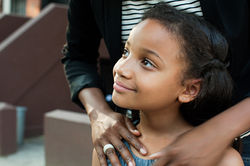We can offer both Special Needs classes and Private Lessons.
Children with disabilities no doubt benefit from participating in gymnastics. Benefits relating to strength, flexibility, balance, coordination, confidence, self-esteem, and social development are all a primary focus and just after a few sessions, you'll notice a remarkable difference.
Gymnastics strengthens the body and the mind, of course. But a child who struggles with learning disabilities, challenges in communicating, low self-esteem and difficulty socializing can benefit in ways that go far beyond the gym.
What is Physical Literacy?
Physical literacy is about helping your child develop the skills, knowledge and behaviours that will give them the confidence and motivation to lead active and healthy lives.
Focusing on ongoing growth, physical literacy involves holistic lifelong learning through movement and physical activity. It delivers physical, psychological, social and cognitive health and wellbeing benefits for people of all ages.
The Australian Physical Literacy Framework, developed by Sport Australia, activates this commitment through the establishment of a common language to support all Australians develop their physical literacy, at every stage of life.
Physical literacy provides:
-
physical skills and fitness
-
the attitudes and emotions that motivate you to be active
-
the knowledge and understanding of how, why and when you move
-
the social skills to be active with others.
What each Physical Literacy Domain area means:
-
Physical – Movement skills that allow a person to move (on land, water, snow or ice) from one place to another
-
Psychological – Positive emotions and experiences derived from movement and physical activity
-
Social – Moral principles that govern a person’s behaviour, relating to fairness and justice, inclusion, equity, integrity and respect.
-
Cognitive – Factual knowledge a person can understand and convey; often important in recognition, recall and planning







